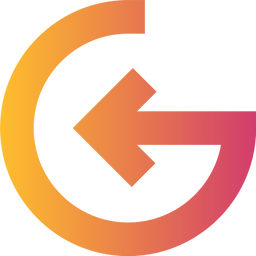This article is based on part two of Ken Roden’s insightful interview on GTM-FM. Check it out here!
Welcome back to our exploration of AI's impact on go-to-market strategies!
In the first part of this series, we delved into the qualities of great GTM leaders in the age of AI. Now, we're taking a deeper dive into how AI is reshaping the GTM landscape.
In this article, we'll cover the growing role of AI in GTM, from personalization to leadership coaching. We'll explore AI's exciting possibilities, but we won't shy away from the challenges either. You'll learn about best practices for ethical AI usage, why some businesses are hesitating to adopt AI, and what separates the winners from the losers in this new landscape.
Whether you're an AI enthusiast or a skeptic, you'll find practical insights on how to leverage AI to improve your work and life. By the end, you'll have a clearer picture of what an ideal world with AI might look like – and how we can work towards it.
Let's dive in!
AI's growing role in go-to-market strategies
In go-to-market roles, AI is already starting to become a kind of professional sidekick. It's helping with things like task automation, check-ins (so you don't have to go to every person who’s working on a project and say, “Hey, did you do that task?”), and keeping projects on track.
However, I'm most excited about the possibilities that AI will soon offer for personalization, coaching, and how we operate our go-to-market strategies within a business.
Let me tell you what I mean.
Personalization
According to Salesforce, 56% of B2B buyers expect personalized offers.
Now, I don’t know about you, but I've done a few product launches where customer success managers (CSMs) or account executives (AEs) have asked for messaging tailored to specific verticals or regions, and I’ve been like, “We don't have time, sorry, it can't happen.”
Well, AI is going to help us out here. Thanks to these new capabilities, it’ll soon be a lot easier to personalize messaging and offers by persona, level of seniority, and location.
This is going to help make the experience more connected to buyers, so they feel like it's for them. That's a growing demand by buyers - they want a product that's for them, that knows their industries and pains, that's actually going to help them solve their specific problems.

Strategy
Imagine having an AI bot that's proprietary to your company, but that can look at all your data across Salesforce, Pendo, Highspot, and beyond.
It could analyze how customers are using your product, how that's leading to the growth of specific SKUs, and maybe how that is leading to what content is being pitched by your sellers. It could actually analyze your entire go-to-market strategy, poke holes in it, and recommend improvements.
We're not there now - but it will be almost like having a coach who has an MBA, is a bit of a futurist, understands go-to-market, and can guide you through that journey.
AI-powered leadership coaching
The changes that AI will enable in the world of business go beyond just personalization and go-to-market strategies. I foresee a future in which AI revolutionizes company leadership.
Imagine you're a CRO or CMO with a philosophy on how sales should be done, as well as how to show up as a person and what the culture of your team should be. What if you…
- Uploaded all that information to a GPT meant only for your organization
- Input your best advice and how you'd handle certain situations
- Created a digital assistant for your frontline to ask questions like:
- “What should I do in this situation?”
- “How do we handle competitive pressures?”
This could take coaching to a completely different level. It's still human because it's coming from a person guiding the business strategy, but it's scaled so each individual can get insight around specific topics they need.
This concept could extend beyond organizational leaders. Executive coaches could create their own GPTs. Imagine if thought leaders like Brené Brown had a GPT where you could describe a situation and get an answer back – that would be incredible!
The pitfalls of using AI in GTM
While I want my team to use tools like ChatGPT to help with their work and free up time for strategic thinking or a better work-life balance, I have some real concerns about this:
- Data privacy: If teams put proprietary information into ChatGPT or Claude, that information could be available to unknown parties. Organizations need to create and align on policies, but it'll still be hard to manage given how differently we all work.
- Quality of work: If everyone's using the same GPT or digital assistant for messaging or email sequencing, we'll get generic answers and we won’t stand out. Organizations are looking for vendors with unique, differentiated perspectives.
- Data quality: The more advanced applications of AI (personalization, data analysis, coaching) require huge amounts of clean, reliable data. Many organizations struggle with this. Remember: the quality of your input data determines the quality of your AI output.
These are some of the key issues I'm aware of as we navigate this new world of AI in go-to-market strategies.
Best practices for ethical AI usage
We're at a stage now where ChatGPT and other AI tools can provide high-quality information for tasks like research or even vacation planning.
However, it's becoming clear that AI is sometimes less than 100% honest – unintentionally, of course. Due to copyright restrictions, it might - for example - summarize based on reviews or existing summaries rather than directly referencing what you've asked about.
When my team asks about using AI for work, I'm usually very much in favor of that idea, but I also want to know when and how they're using it so that we can be a little bit critical of that output. We need to ask:
- Does the output actually make sense?
- Is it fact-based?
- Is there any bias, and if so, where's it coming from?
Currently, there are no national or global policies on AI ethics. That means it’s on us, as leaders and individuals, to think critically about AI's output.
Don't claim AI-generated work as your own. Also, be aware that AI-sourced information may not be 100% accurate or properly sourced, so we need to be extra critical.
While chatbots aren't acting maliciously, they might be programmed or use algorithms that don't always provide accurate answers. When I use AI tools, I always ask for source citations. If the bot can't provide a link, I assume it's not a real stat.
As Ms. Frizzle wisely said, “Take chances, make mistakes, get messy.” This is the attitude you should take as you use AI.
We should:
- Critically think about the outputs we're getting
- Consider how this information could affect others if shared broadly
- Refine outputs, pointing out inaccuracies and suggesting changes to the bot
It's crucial to encourage people to be scientists and experiment with AI. This approach will help improve AI algorithms. As we invest more in this and other technologies, we need to lean into our human skills, often called “soft skills,” though they're actually quite durable.
The more we invest in AI and other innovations, the more we need to hone these human skills. By being transparent about AI use, critically evaluating its outputs, and using it as a tool for exploration rather than a source of absolute truth, we can harness its potential while mitigating its risks.
Why some businesses are hesitating to adopt AI
Over the past couple of months, I've had the opportunity to talk with go-to-market leaders and professionals focused on marketing, sales, customer success, or product about AI and how they want to use it.
Honestly, I'm still a little shocked to hear people say, “I'm waiting to see if it becomes a thing,” because it's already a thing—it's already part of so much of what we do.
ChatGPT and Claude made AI accessible to the average consumer, but organizations have been using AI and machine learning for a decade or more. This isn't new technology; it's established technology. It’s just how we're using it that’s being fine-tuned.
Some people fear that AI will create a world where everything is super generic, and creative outlets like art, writing, and even graphic design are just used to feed an AI bot that will then mass-produce everything. That's a valid concern. We should have standards around how arts and writing are used for AI and how those outputs are used for TV, entertainment, or the fine arts.
However, rather than resisting AI's rise, we need to start defining parameters for its use. AI is very much here, and it's part of our lives. Let's figure out an ethical way to use it that makes sense for us.
Investing in AI: Winners and losers
Whenever organizations invest in anything new, there are always costs, pros, and cons to consider. You can see that in how AI is being adopted – some companies are investing heavily in AI, but many are more hesitant.
Interestingly, many small startups and solopreneurs are investing heavily in AI. This will allow them to launch their businesses faster than their predecessors, using AI for marketing, CRM, product enhancements, and the voice of the customer.
We're going to see an explosion of small companies with maybe 10 or 20 employees operating with the efficiency and reach of an organization with hundreds or even thousands of staff.
There will be some winners and losers from all this. The organizations that win will be those that experiment with AI and learn what works for their business. These winning organizations will be focused on upskilling, enhancing their buyer's journey, and building agile teams.
The companies of the future are evolving their go-to-market strategies, evolving the skills of their employees, and rethinking their leadership approach to go-to-market. It's a mix of tech and human, and the people who aren't doing that will fall behind.
Making your life better with AI
As we’ve seen, there are some totally valid concerns about AI. However, I've found some really fun and practical ways to engage with AI that have genuinely improved my life.
For instance, my boyfriend and I were planning a trip recently. He wanted to go to the beach, while I was more interested in a Zen yoga wellness retreat. We tried to use Google to find a destination that would suit us both, but we were getting nowhere.
So, I turned to ChatGPT. I told it what we were looking for and asked for recommendations. Not only did it provide six great options with links, but it also drafted an email in my voice and tone summarizing the findings, which I then sent to my boyfriend so he could pick his favorite one. This saved us a ton of time and made the planning process much smoother.
From a professional standpoint, I've used ChatGPT as a career coach. I'll prompt it by saying, “You are a coach with 20 years of experience. Here's what I'm thinking. Let's have a conversation about it.” The amazing thing about it is that it accesses information from some of the best coaches in the world.
Is it perfect? Probably not. Still, it gets me thinking about the issues I want to focus on, sparking creativity and providing valuable insights.
Here’s another example: I'm currently exploring starting a podcast with a friend. I can ask ChatGPT, “What do we need to know to start a podcast?” and get a comprehensive answer without having to dig through countless websites.
One of my favorite techniques is to ask about a complex topic and then say, “Explain it to me as if I'm an eighth grader.” The AI breaks it down in a way that's easy to digest and understand. This approach has been incredibly helpful for grasping difficult concepts.
Closing thoughts: An ideal world with AI
While it’s hard to imagine what a perfect world will look like with AI, I have a clear vision of what I hope to see. Essentially, I want humans to remain at the center of it all. AI should enhance our capabilities, not replace our essential human qualities.
Ideally, AI will take over the repetitive, joy-sapping tasks that often keep employees working late into the night. No more struggling until 11 PM to get that Excel formula just right for a report due the next morning. Instead, AI could handle these tedious tasks, freeing up employees to focus on more meaningful work.
The ultimate goal is to use AI to improve work-life integration. By offloading time-consuming, repetitive tasks to AI, we can create space for more human connection and allow employees to engage in work that feels truly meaningful.
AI is already a part of many people's lives, and its influence is only going to grow. However, it's crucial that we use it in the right way - a way that allows us to be more human than we perhaps have been in the past, especially given the isolated, digital life many of us experienced a few years ago during the pandemic.
As we continue to integrate AI into our personal and professional lives, we need to ensure it enhances our human qualities rather than diminishing them.
Used thoughtfully, AI can free us from mundane tasks, spark creativity, and give us more time for meaningful human interactions. That's the potential I see, and that's the future I'm excited about.





